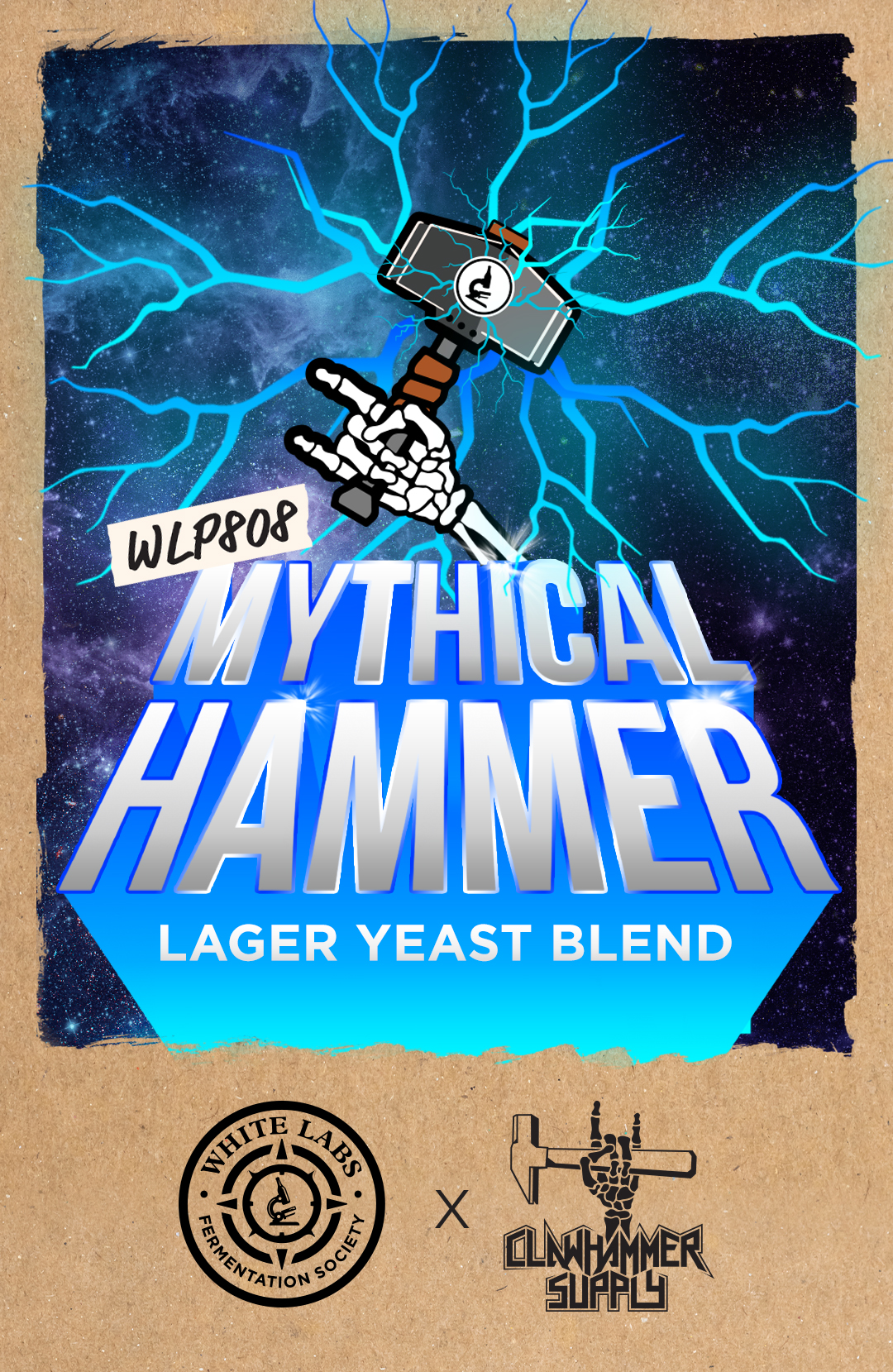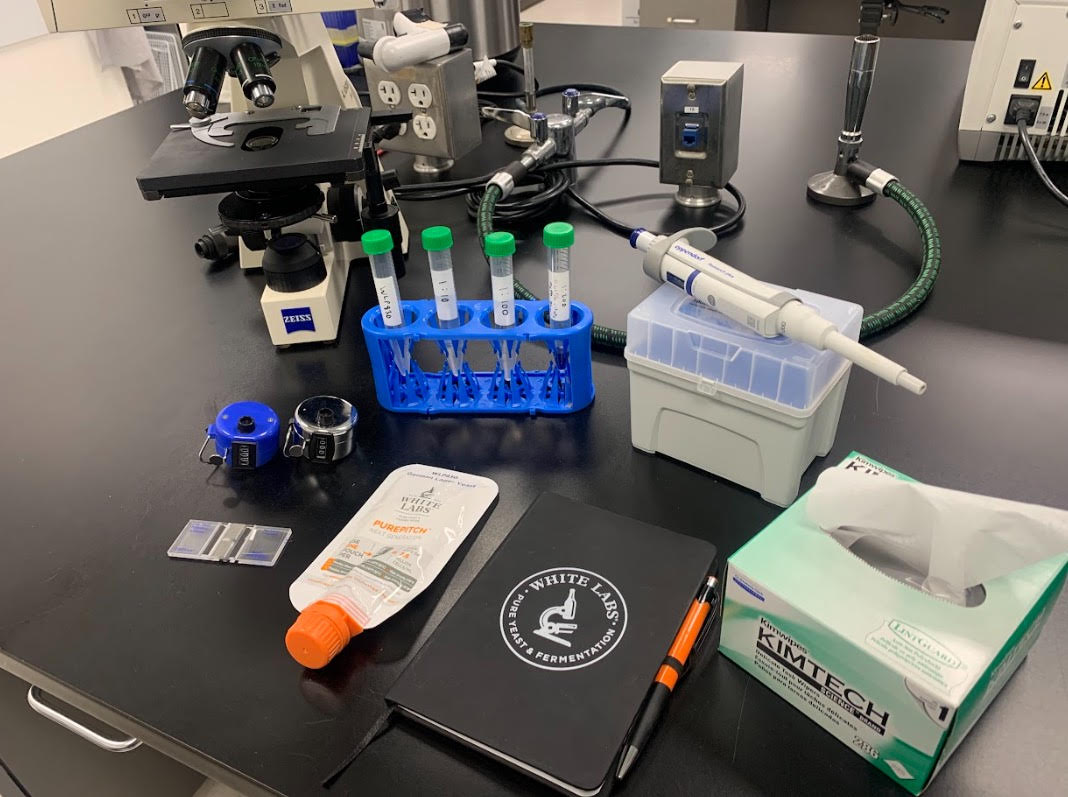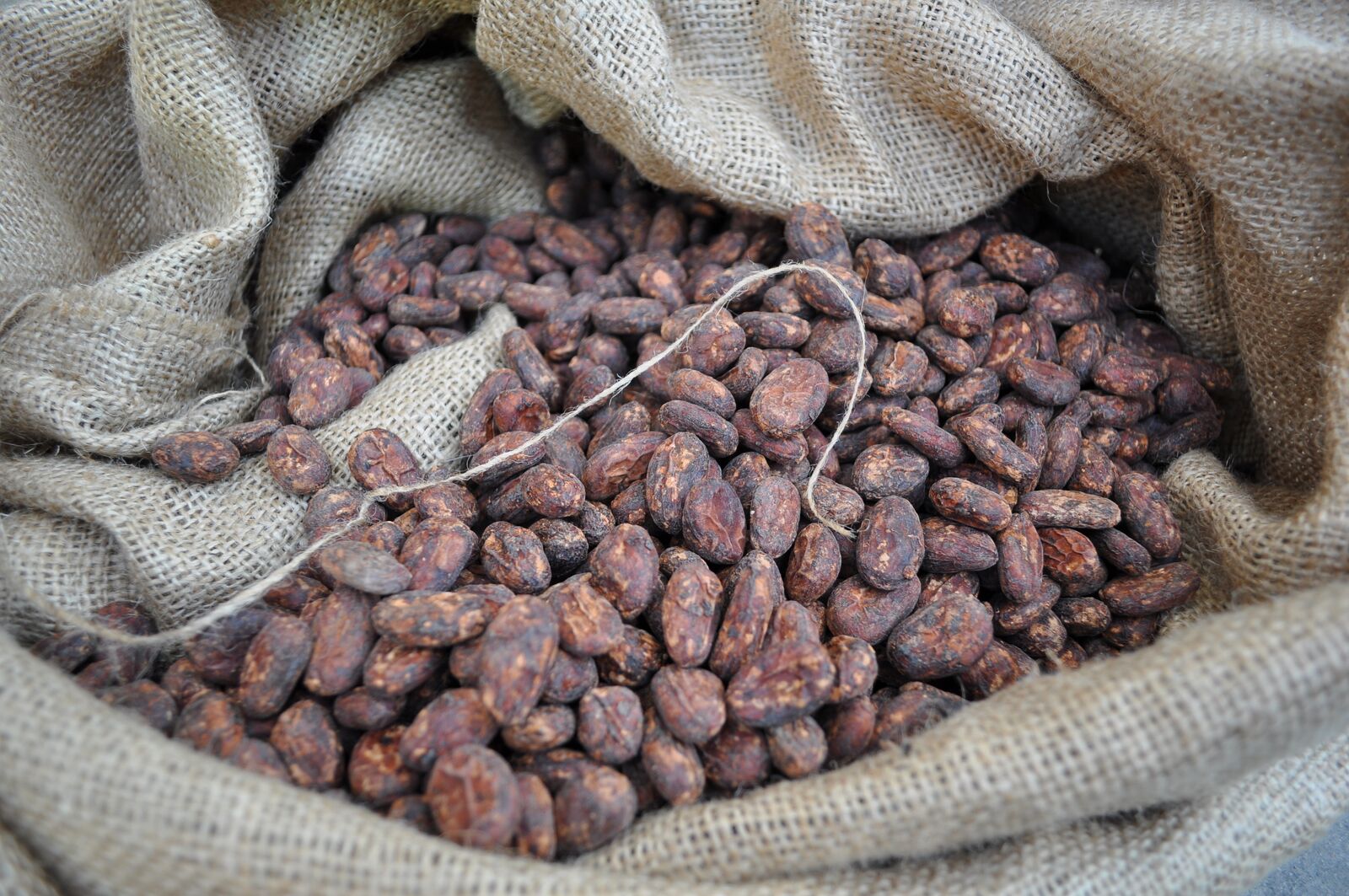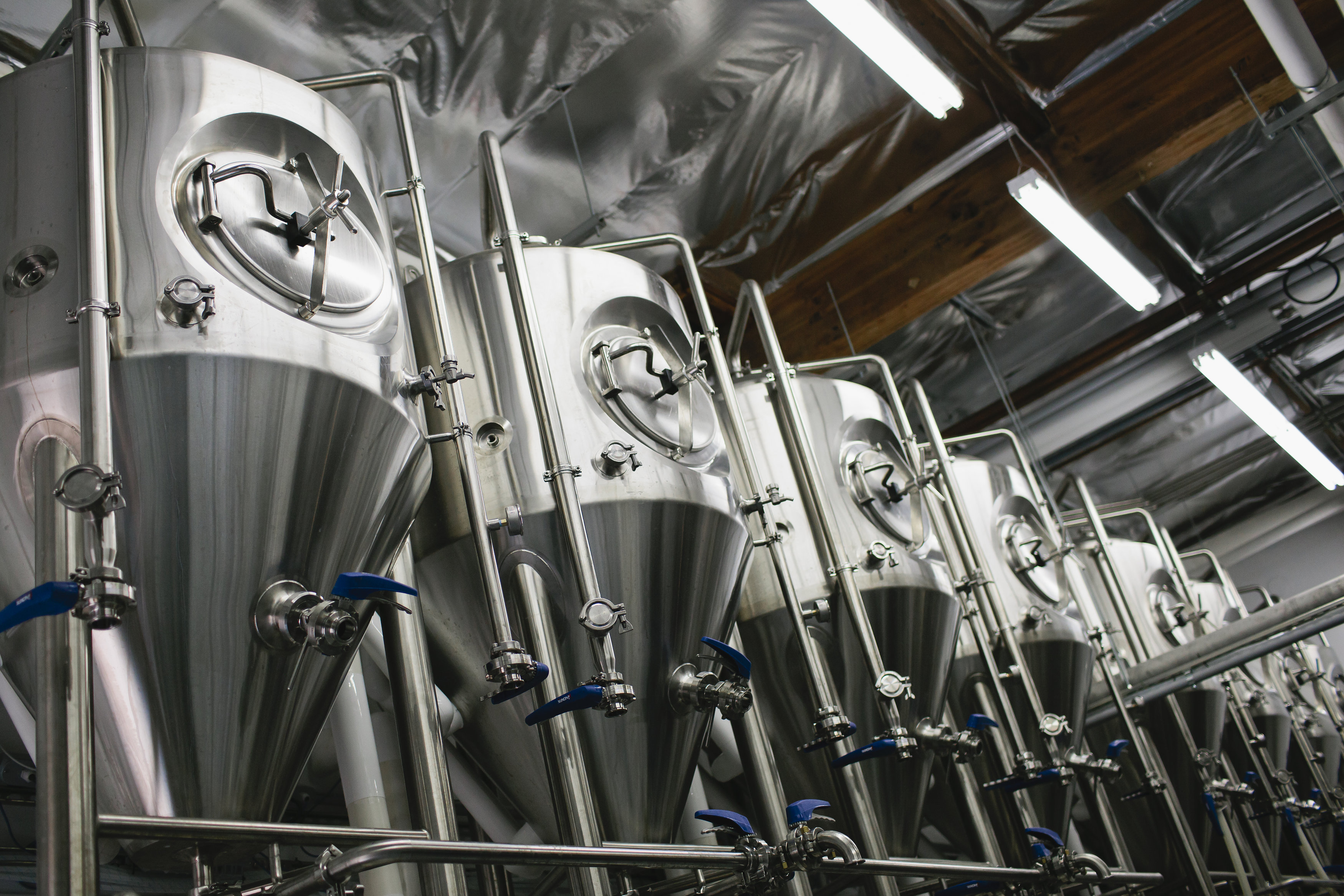A New Yeast Strain Forged By The Brewer Gods
The New Fermentation Society Exclusive Strain
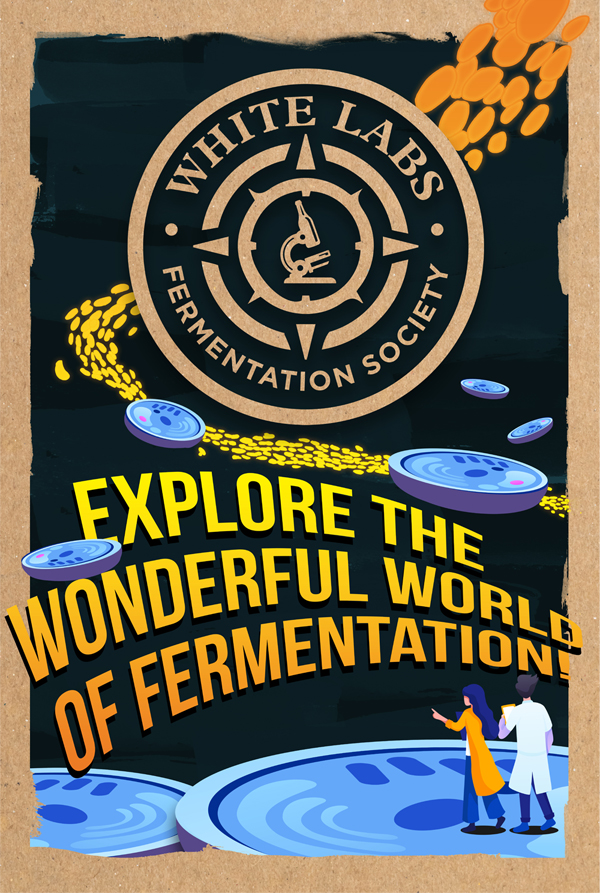
What is the Fermentation Society?
What began as home brewers searching for higher quality yeast, grew into a team of dedicated biochemists exploring new ways to advance their passion for brewing altogether. White Labs was founded through homebrewing back in 1995, and today we continue to cherish the community as it is the backbone of this company.
Learn more about the Society and How to Join
Forged by the Brewer Gods
A mythical tool of magical yeast cultures waiting for the one who could wield their raw power. With these yeasts, brandished by the experts of White Labs and Clawhammer Supply, comes a rare blend of lager strains that is sure to become legendary: WLP808 Mythical Hammer Lager Yeast Blend.
A multifaceted lager yeast blend, also capable of pressurized fermentation, creates a beer that is elegant and crisp, with subtle citrus aromas. From American Light Lagers to Cold IPAs, Mythical Hammer transcends the boundaries of lager beer.
Clawhammer Supply, an online homebrew supply shop, came asking for a new tool to wield with their new pressurized fermenter.
“A lager strain robust enough to handle extra pressure from fermentation as well as producing a relatively clean profile that also accentuates hops would be rad.”
The Artisans That Yield The Tool
A tool is just a tool without the artisan to yield it. We asked our fellow brewers to use this new tool of WLP808 Mythical Hammer Lager Yeast Blend to stretch the boundaries of what is capable with this tool.
Brew your own 5 Gal Cold IPA with WLP808
Here are some of our friends and their brews
How Does Pressurized Fermentation Work?
First, please ensure your brewing equipment can safely hold the increased pressure. With pressurized fermentations, temperatures can be elevated. Lager Fermentations at 18 °C/64 °F or higher can be achieved and shorten fermentation timelines.
Our Recommended Pressure: 15PSI and 1 Bar
Some benefits include
- Higher temperatures = faster fermentation
- Reduction of esters and fusel alcohols
- Natural Carbonation
Fermenting lager beer at traditional temperatures can be challenging without the proper cooling equipment. Warmer temperatures typically promote yeast growth, speed up fermentation timelines, and increase fermentation-derived flavor. This wouldn’t be an issue for an ale strain, but lager strains have adapted to cooler temperatures, and when fermented warm, they may produce unwanted flavors. One way to combat this rise in metabolic activity and the potential creation of “off-flavors” is to apply pressure to the fermentation vessel while keeping the temperatures warmer (60-68F) during fermentation. The added stressor on yeast cells of fermenting under pressure can inhibit the synthesis of volatile compounds. This results in the ability to create a traditional, clean, and crisp lager with just a slight adjustment in the process. One last benefit worth noting is the ability to naturally carbonate, which can also be achieved with pressurized fermentations, saving precious time and money.
Both Shantha Kumara et al. (1) and Kruger et al. (2) agreed that there could be acetyl-CoA inhibition due to the CO2 sensitivity. Acetyl-CoA is one of the precursors of acetate esters (fruity); thus, repressing the synthesis of acetyl-CoA will result in lower production and less perceived flavor. This would explain the lower concentration of esters, especially ethyl acetate and isoamyl acetate, produced when fermenting at typical CO2 concentrations during atmospheric fermentations. Knatchbull and Slaughter (3) have shown that a high concentration of CO2 negatively affects the uptake of amino acids by yeast during fermentation. They reported that when fermenting at CO2 concentrations above the level typically found at atmospheric pressure, the absorption of branched-chain amino acids was reduced. These amino acids included valine and leucine, which are precursors of isobutanol and isoamyl alcohol (warmth/boozy), respectively.
Warmer temperatures and quicker fermentations producing crisp, clean lager beer is the perfect way to get great-tasting beer in a glass sooner! Order WLP808 Mythical Hammer Lager Yeast Blend today and wield the power of the Brewer Gods.
Learn more about the science behind Pressurized Fermentation
References
(1)Shantha Kumara, H., Fukui, N., Kojima, K., and Nakatani, K. 1995. Regulation mechanism of ester formation by dissolved carbon dioxide during beer fermentation. Tech. Q. Master Brew. Assoc. Am. 32(3): 159-162.
(2)Kruger, L., Pickerell, A., and Axcell, B. 1992. The sensitivity of different brewing yeast strains to carbon dioxide inhibition: Fermentation and production of flavor active volatile compounds. J. Inst. Brew. 98:133-138.
(3)Knatchbull, F. B., and Slaughter, J. C. 1987. The effect of low CO2 pressures on the absorption of amino acids and production of flavouractive volatiles by yeast. J. Inst. Brew. 93(5):420-424. https://doi.org/ 10.1002/j.2050-0416.1987.tb04530.x.
- TECHNICAL
- April 4, 2024
- TECHNICAL
- November 16, 2023
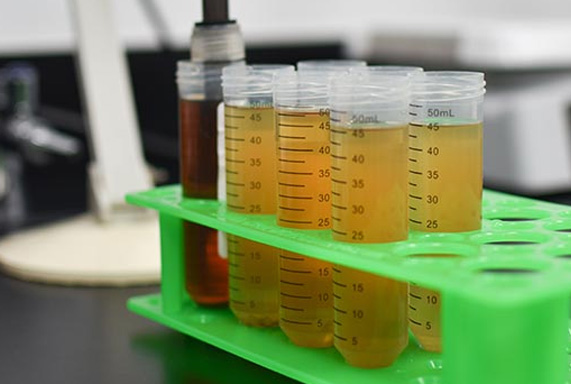 Yeast & Bacteria Bank
Yeast & Bacteria Bank
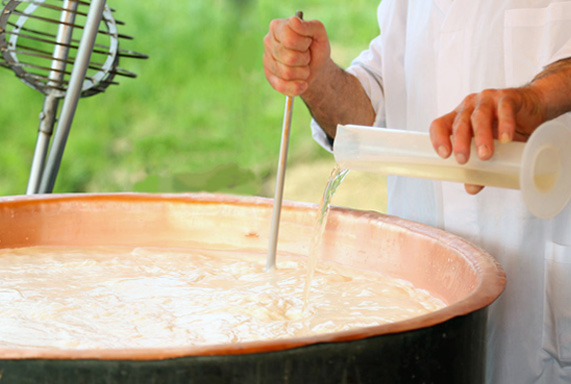 Enzymes & Nutrients
Enzymes & Nutrients
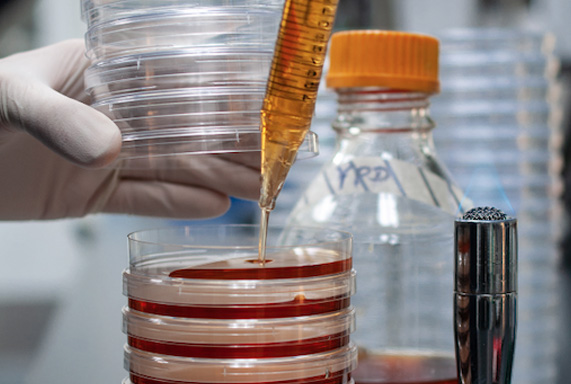 Lab Services
Lab Services
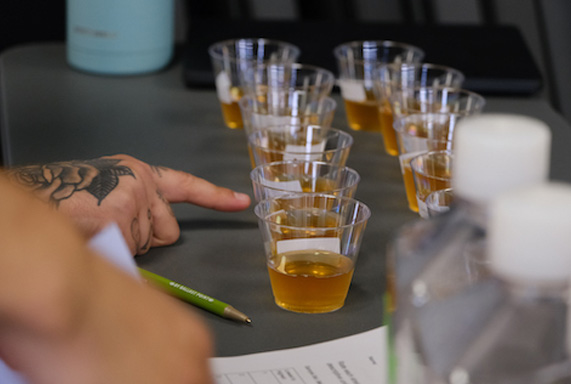 Education
Education
 Merchandise
Merchandise
